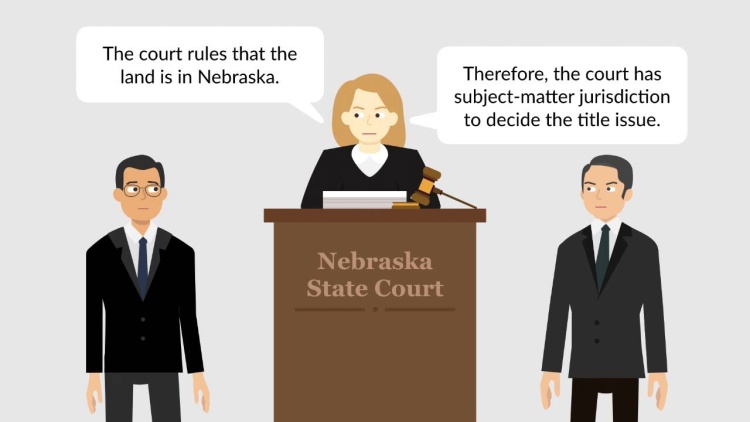Durfee v. Duke
United States Supreme Court
375 U.S. 106 (1963)
- Written by Matt Fyock, JD
Facts
Durfee (defendant) sued Duke (plaintiff) in Nebraska state court to quiet title to land on the Missouri River on the boundary between Nebraska and Missouri. The Nebraska court’s subject-matter jurisdiction depended on whether the land was in Nebraska. Duke appeared in the Nebraska state court and contested jurisdiction but litigated the case to completion. The Nebraska court held that the land was part of Nebraska by avulsion, found jurisdiction proper, and ruled in favor of Durfee. Duke appealed, but the Nebraska Supreme Court affirmed the decision after a trial de novo on the record. Instead of requesting a writ of certiorari, Duke sued to quiet title in Missouri state court, claiming the land was in Missouri and the Nebraska court never had jurisdiction. The case was removed to federal court based on diversity of citizenship. The district court concluded that the land was in Missouri but nevertheless held that res judicata applied and the judgment of the Nebraska Supreme Court was binding. The court of appeals reversed, finding that the Nebraska judgment regarding a land dispute was not entitled to full faith and credit. Thus, under the appellate court’s view, a Missouri court had the right to reconsider the question of the Nebraska court’s subject-matter jurisdiction. Durfee petitioned the United States Supreme Court for certiorari, which was granted.
Rule of Law
Issue
Holding and Reasoning (Stewart, J.)
Concurrence (Black, J.)
What to do next…
Here's why 907,000 law students have relied on our case briefs:
- Written by law professors and practitioners, not other law students. 47,100 briefs, keyed to 996 casebooks. Top-notch customer support.
- The right amount of information, includes the facts, issues, rule of law, holding and reasoning, and any concurrences and dissents.
- Access in your classes, works on your mobile and tablet. Massive library of related video lessons and high quality multiple-choice questions.
- Easy to use, uniform format for every case brief. Written in plain English, not in legalese. Our briefs summarize and simplify; they don’t just repeat the court’s language.








